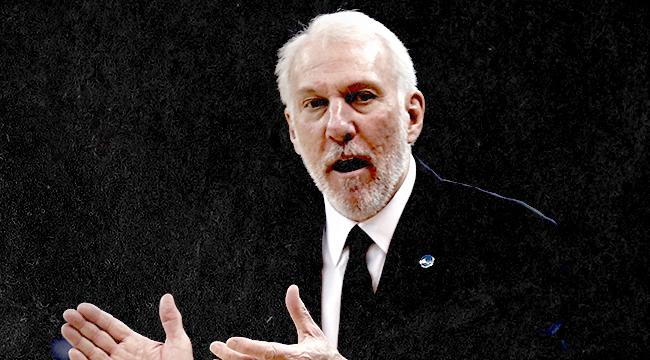Gregg Popovich does a lot that seems simple, but is powerful. Those actions are powerful because men of his stature aren’t known — or in some cases, expected — to behave this way.
Take the recent decision to bench club legend Tony Parker for youngster Dejounte Murray. This move could have caused a locker-room rift had Popovich not given Parker the respect to talk him through it
Parker isn’t the first great player to lose his starting spot due to age; this happened to Pau Gasol and Manu Ginobili before him. Neither is Popovich the first coach to make the tough decision of benching a player who served him well over the years.
But it’s not just magic that the move went down smoothly and without drama. It’s because Popovich went about it in a respectful, transparent way that assured his player that his intentions were sound for both them and the team.
Popovich also understands the importance of compromise. Back in November of last year, he talked about how he and Ginobili got on the same page years ago:
“In the beginning, he would do some things that I thought were unnecessary until that point came when he came to me and said, ‘I am Manu. This is what I do.’ I said, ‘OK, you go ahead and try to save one or two of those passes per game and I’m going to shut up one or two times when they happen during the game.’ We came to this compromise and it’s been lovey dovey ever since.”
Popovich could have dismissed Ginobili’s brashness. Instead, he accepted and molded it for the good of the team.
Popovich also could have dismissed LaMarcus Aldridge’s concerns last summer. The Spurs’ free agent prize didn’t live up to his ability in his first two seasons with the Spurs. Frustrated at the pressure of becoming someone he wasn’t on the court, he confronted Popovich after the season and requested a trade.
Rather than letting the story come down to whispers and anonymous accounts, Popovich had an open one-on-one conversation with Aldridge. A conversation in which the coach — in a moment of pubic self-reflection rare for his profession — admitted that he was the one at fault:
“We broke bread a few times, talked about it, laughed about it, discussed what we thought needed to happen, and frankly 95 percent of it fell on me because I made an error in trying to change him too much,” Popvich said. “That might sound odd, but he’d been in the league nine years and there’s one way he plays on the offensive end and feels comfortable with.”
Popovich understands the simple idea that the leader of a team is accountable to his followers, and not the other way around. It’s a reality that is contrary to the perception of him as a disciplinarian, a view that's quickly assumed from his military background and the boring nature of his teams.
Add in the fact that Popovich also has that trust with the organization and doesn't have the fear of being fired, and you get a great situation where he can feel comfortable in being wrong.
That approach is especially effective in the NBA, where players have more power than most other leagues. Someone like Aldridge can request a trade and it has to be taken seriously, even in a place like San Antonio that’s historically valued the institution over the player.
Perspective matters too; that Popovich’s identity isn’t couched in basketball allows him to manage personalities better than his peers. As strict as he may seem, he always critiques players with basketball issues, not personal ones. So when he does need to confront a deeper psychological challenge, as in the case of Aldridge, he has the credibility to convey understanding with his players rather than seeming defensive.
That attitude goes a long way toward keeping the Spurs boring, in a good way. Even the most recent reported disagreement about Kawhi Leonard’s injury status seems tamer than most disputes because there’s little question that Popovich, R.C. Buford, and others with the Spurs want what’s best for the player. The trouble is modern medicine, not the team.
Every coach wants the big payoff of winning and winning big. Popovich is no different. But those lofty accomplishments are glued together by many smaller ones that keep the ship afloat. To have a long-running dynasty like the Spurs, you don’t only need a coach who can get the best out of his direct reports on the court, you also need someone who is able to connect to those players as people.
And sometimes, that requires having the humility to admit that you’re part of the problem and must compromise.
